|
Sequels never live up to the original. I know that, we all know that.
But in this case, I was pleasantly surprised that the sequel to the beloved My Big Fat Greek Wedding did, in fact, live up to the first. The story picks up years later, when Toula has a high school age daughter. I love how at the beginning of the movie, Toula’s kind of returned to frump girl. Motherhood and life’s business have sort of shattered her dreams again. She even has to put back on the old glasses when hers break. The movie covers a range of real-life issues: losing your identity as a mother, dealing with aging parents, keeping the spark alive in marriage, and letting go of those you love. I liked the depth in the theme and plot. There were a lot of “real” moments. Of course, there was also the signature humor. There were a lot of scenes that made me laugh, even if they were sometimes predictable or cheesy. Just like the first movie, this one made me wish I was Greek and had a huge, crazy family like Tula. This movie was a perfect balance of cute, funny, and dramatic. I really recommend this to women of any age, since there are characters every woman can relate to. If you’re a fan of the first My Big Fat Greek wedding, definitely go see My Big Fat Greek Wedding 2. I also adore that the entire cast came back together for this, which really helped make it just as great as the first.
0 Comments
Check out my March Petit Vour Box!
There's a base coat, a shampoo, a face mist, and a facial mask. I tried the shampoo tonight and already love it! I'm going to try the face mask tonight as well. Order your own Petit Vour Box for only $15 a month with shipping. I love Petit Vour because it is cruelty free and all natural.
Such are the fears of the writer. They’re no different than the fears of anyone embarking on a new journey or dream. The difference, though, is that these fears often continue to stir long after one has achieved success. The book market has been flooded with writers dreaming of becoming famous authors. It seems like everyone wants to write a book. Everyone has a story to tell. As an English teacher, I can’t lie—I find this to be a beautiful thing. I do believe everyone has a story to tell. But, as an aspiring author, the question can become: how do I know if I should even try? What makes MY story so special that it deserves to be published? The answer? You won’t ever know. But how, then, can you know if writing your novel is something you should pursue? Call of the Book
There seem to be so many reasons not to write that book. I know I struggled with them myself when I was writing Voice of Innocence. I felt like I was wasting my time, hours upon hours, on a project that might never see the light of day. I tried to let the excuses creep in, tried to rationalize why I shouldn’t write my story.
But the thing was, I couldn’t just stop. I mean I literally couldn’t. I decided to abandon the book…and it would creep in when I was taking a walk. The characters, the story begged to be finished. I felt like I’d abandoned friends, leaving them hanging in limbo with an uncertain future. I continued to write and then abandon, write and abandon Voice of Innocence for years. All of the fears above wormed their way in. But the call of the book, the need to tell the story, it always won out. I had a student recently talk to me about having a book idea but struggling with whether she should write it. I asked her how and when the idea came to her. It turns out, she came up with it months ago and she just keeps expanding on it in her mind. I told her she should go for it. There is no easy answer to deciding if you should write the book. I can’t give you a formula or an equation or a survey. All I can tell you is that if the pull of the book is strong enough to make you think about it, to make you wonder about it, if it is strong enough to last months if not longer, then go for it. Will you be successful? Will your biggest fears up above come true? It’s possible. But a true writer can’t let that get him or her down. A true writer’s eyes aren’t on the money or the fame. They’re on the story. They’re on finding relief from the uncontrollable stories bouncing around within, leaving him or her restless. So You've Decided to Write Your Book
Congratulations! You’re going to pursue that idea. You’re going to spend hours upon hours crafting your tale. You’re going to send it out to publishers or agents. You’re going to open it up to the world.
The fears, the reserves, they’re gone, right? I’d like to say yes. I’d like to say that once that last word is typed, the fears melt. But they don’t. Writing is a very introspective craft. To put that introspection on a platter and serve it to the world, whether it be to your friends, family, beta readers, publishers, or agents, is tough. In fact, I think once the book is finished, the fears increase tenfold. Suddenly, you’re thinking: 1. Did I write an interesting enough story? 2. Will people pay for my book? 3. What if people think the characters are based on my real life? 4. Do I want people knowing my perspectives on these issues? 5. What if I have typos that are caught? 6. What if no one ever publishes my book? 7. What if the reviewers hate it? 8. What if people make fun of me for this book? 9. What if people don’t get it? The list goes on and on. I’ve had three books published now, and I can say that confidence does come with time. But these fears do still infiltrate my psyche from time to time. They do sometimes taunt me and my writing career dreams. Being a writer is a tough path. There are always questions and doubts, fears and hesitations. But once you commit, once you leap that first hurdle of actually writing your book, I can tell you: it’s worth it. You might never become a bestseller. You might not have thousands of fans. You might not have dozens of five-star reviews. Then again, you just might. Telling a story no one likes or no one buys or no one cares about is not a failure. The only failure in writing is not telling your story in the first place. For more inspiration or to decide if you have what it takes to be a writer, I recommend Stephen King’s On Writing. The Modern Woman: Selfless Giving and Unappreciated Living
Maybe it's you.
Maybe it's your mom. Maybe it's your best friend. Maybe it's the woman in front of you in the grocery store. We all know that modern woman who gives until she's worn out, frizzy-haired, and exhausted. I would argue that we are all that woman to some degree. We give to our families, cooking and cleaning after a long day at work. We give to our children, clothes, support, time, and love. We give to our students, answers, encouragement, exciting opportunities. We give to our friends, our cashier at the checkout, our dentist, our doctor, our mailman...a smile, a friendly hello, a conversation when we're just feeling like basking in silence. From the time we're little, we're taught to be caregivers and empathetic thinkers. We're taught to help and give. In the modern generation, though, we've also been taught to succeed and accomplish. Combine the will to achieve with the instinctual desire to give, and what do you get? A lot of tired, exhausted women. What do those tired, exhausted women get in exchange, though? The Desire to Be Appreciated
Don't get me wrong. This isn't a pity post. This isn't a "women are underrated" or "women are undervalued" post.
For many of us, we devote our lives to achieving and giving simultaneously because it's what makes us happy. It's what helps us find our place in this world. There's nothing wrong with that. However, there is a slight problem with this lifestyle--the need for appreciation. We all feel it from time to time. It creeps in when we least expect it. The snotty remark from a child. The eye roll from a friend who thinks your job is easy. The complaint from the husband that the laundry is behind. It's human nature: people only recognize what we haven't done, not what we do. This, however, can be frustrating for the modern woman wearing her Wonder Woman Cape and trying to do it all. It's one thing to put your own needs and desires on hold to be successful and help others. It's another when someone doesn't even notice all of the work you're putting into everyone around you. As humans, we crave appreciation from time to time. We need to know we're recognized, even if it's just a smile or a thank you. We can't all get Oscars or Nobel Peace Prizes after all. Too often in our society, though, appreciation is a hard thing to grasp. We live in a "give me more" society. Appreciation, especially for others, can be hard to muster up. Finding Your Own Appreciation: An Emerson Viewpoint
So what do we do?
Stop being giving? Stop devoting ourselves to our careers, our children, our families, and everyone in between? I mean, it sounds appealing sometimes, but I like Netflix, chocolate, and shoe shopping too much to go out in the woods and hide in a tree house in solitude. The answer, I think, comes from Emerson. We must learn to listen to our own heartstrings. We must learn to appreciate what we need, what makes us happy. We must value ourselves for who we are, good and bad, shortcomings and all. We must learn to look to ourselves for approval, for satisfaction, for happiness. We must learn to give ourselves a pat on the back from time to time, to recognize ourselves, to appreciate our own feats. We also must take time to do what we want to do, to soothe our own souls. We must stop worrying so much about what society deems is a successful role for women. We must sometimes stop worrying what everyone around us needs. We must find our own sense of place, sense of satisfaction. It is only by appreciating and valuing our selves we can find that in others. This week, students wrote tributes to the people who impacted them the most. I was floored by one student's response. He wrote a tribute to himself. He wrote that at the end of it all, good or bad, he was the one who dictated his life path. He was the one who took the most pride in his successes and hurt the most from his failures. He wrote that he has important people in his life who have helped him along the way. At the end of it, though, he must be his own biggest support. I thought it was genius. Many in society would deem this viewpoint selfish. I loved it, though. How many times do we really stop to be our own support system? How many times do we stop to celebrate our successes and our talents? There is a fine line between confidence and cockiness, true. But from time to time, we need to stop and appreciate our own worth, our own contributions to this world. We must find a sense of appreciation in our own soul for ourselves. Otherwise, all of our successes, accomplishments, and devotion to others is pointless. If we are not living from a place that satisfies our own being, then we are not truly living the life we are meant to.
In this segment of Love Notes, we're talking money. Chad and I met when we were twelve at the art table and have been together ever since. We've been married now for four years (we're 28), and we've learned a few things along the way. Mostly, we've learned that monogamy and happiness are possible in the modern world, even if a perfect marriage isn't.
Money Fights: Why Money Makes Us Stressed
Eek! It’s the blog post no one wants to read—the one about money.
Why do we clam up when we even think about the green paper? There seems to be a built in freak-out button in us that causes us to zip our lips when someone starts talking about financial aspects. We never talk about salary with each other, and we hate to admit we are broke. There’s so much shame, pride, and insecurity when it comes to talking money. I think many marriages find themselves in trouble over financial aspects because of this very reason. Even when we’re sharing a bed with someone, we hate talking money. We avoid it, we pretend it doesn’t matter, we pretend it doesn’t exist. Until it does matter and money’s existence in our relationship rears its ugly head. However, there are secrets to keeping money out of your marriage at least from a fighting perspective. Money Fights: The Early Years
During the early years of marriage, Chad and I were trying to just keep it together. We had both lived under our parents’ rooves forever. We had no clue how one went about creating a budget or how much the water bill would cost.
We were clueless. I can remember that first week of marriage. We were TERRIFIED we were going to blow it financially. We took a calculator the grocery store and were afraid to even buy a pack of cookies because we didn’t want to run out of money. With this fear came a lot of stress, and with stress, fights sometimes break out. Overall, we’ve been fortunate to not have many money fights, even in the beginning. There were a few times we argued because one of us made a purchase the other deemed unnecessary. There have been times when everything seemed to break at once and money became an issue. But we’ve never had a screaming, knock down fight over money. Why? We learned a formula early on for success when it came to financials in married life. Money and Marriage: Secrets to Success
We have a few rules that we’ve followed since we said “I do.” These rules have helped us keep things running smoothly, even when we hit a few monetary disasters.
1. Always check with the other person when making a significant purchase. A $5 shirt…obviously buy it! That doesn’t need permission. That would just be annoying. A $300 game system or a $100 pair of shoes? Maybe, but we need to talk about it. This isn’t something we learned the hard way—it’s just been the way we roll. Maybe it’s because we’re both incessant chatterboxes who feel the need to tell each other everything, but we’ve always had a habit of giving each other a heads up when we want to make a bigger purchase. It helps us stay real about our money situation. We can make sure we don’t have any big expenditures coming up. And we’re both reasonable. I know sometimes he needs to splurge on that video game just like sometimes I need to splurge on my hair (beauty is money, right?). We’ve been good at compromising and at giving each other room to make big purchases. By keeping each other in the loop, though, we are able to work together toward our common money goals without blowing it because of secret purchases. 2. Separate accounts Our families and the checkout people often look at us like we are NUTS…but we have separate accounts. We keep our paychecks separate and our accounts separate. Why not a joint checking account? Honestly, it was just easier when we started. We both had direct deposit and certain auto payments set for our accounts. We are both too lazy and hate waiting in bank lines to go and switch it. So we kept it. We sat down when we got our apartment and again when we bought our house. We divided up the bills fairly, leaving us both the same amounts or close to it. I pay my half out of my checks, and he pays his. What we have leftover we can spend or save. It’s worked beautifully. We both are more accountable for our spending this way. Do we have to help each other out or move money around? Yes. But this is where rule one comes into play. I also think as a modern woman, it’s nice to have my own source of money. I like the independence and freedom it symbolizes. We may be a financial unit, but we each still have our own sense of contribution and worth. I recommend it. 3. Realize Mistakes Will Happen Are we the perfect picture of financial expertise? Absolutely not. We’ve had to reboot from time to time. We spend more than we should. But we’ve learned over the years to cut each other slack. We both have our financial flaws. I buy way too many pairs of shoes, and he’s addicted to gaming. We both sometimes get off track from our long-term goals. But that’s okay. We don’t hold it against each other. Talking About Money: Communication is Everything
By keeping communication open and making each other feel like equals, we’ve avoided the money fights that plague so many couples.
I think above all, we’ve learned that communication is everything. You have to figure out what you both want short-term and long-term, and then work things out to make them happen. There will be mistakes. There might even be the dreaded money fights. But as long as you keep the communication open, you can avoid a marriage ending in a violent rage characteristic of a typical game of Monopoly. Need more tips? Check out this great article by Forbes on how to not let money ruin your marriage. Married? Have a topic about marriage you think we should discuss? Let me know in the comments! Wondering what the heck this Love Notes thing is all about? Be sure to check out my first post for more information.
My husband is not the romantic hero of a swoon worthy love story.
He is not a roses-just-because, romantic love letter kind of man. He’s not a “let’s go to a suit and tie kind of restaurant” or a “let’s go dancing” husband—which is probably good because his only tie has Scooby Doo on it. He’s not a prim and proper, pull out my chair for me, set the table with fine china kind of person. He’s not the suave man with silky words and perfect romantic surprises. In fact, many of his co-workers joke with him about the fact I write romance. They ask him where the heck I get my inspiration from because it certainly can’t be him. But my husband is, in fact, the romantic hero of our love story. Love is in the DetailsI’ve learned over the years that romance, the real kind, isn’t about huge gestures or movie-type moments. Real life love is about the small things, the things that happen when no one is really paying attention. Love is when my husband cleaned the entire house when I was away on a three-day business trip just so I wouldn’t have to when I got home. Love is when he picks up orange tic tacs at the store because they’re my favorite. Love is when he slaps huge car magnets on his truck to advertise for my book. Love is when he makes me laugh when I want to cry. Love is when he tells me he believes in me or that I can keep going or that it’ll be okay. Love is when he takes my cat to the vet because he knows I’m worried about it or when he gets the food ready on New Year’s Eve because I’m busy editing a book. Love is when he picks baked beans as one of our KFC sides even though he hates them just because I like them. Love is when he helps me take new headshots at eleven o’clock at night because I need a new picture. Love is when he sends me an ifunny picture because he knows I’m having a rough day. Are toilet brushes and laundry detergents and vet trips and baked beans sexy or romance-novel worthy? Probably not. But I’ve come to learn that a man in ripped up jeans a Game of Thrones T-shirt who is willing to go out on a limb for you, who is willing to see you at your worst and try to bring you back to your best, that’s what love is. Love doesn’t always come in a suit and tie with fancy dinners and candles. Love isn’t always sleek and smooth and suave. Real love sometimes happens when no one is watching. Real love isn’t always movie worthy. But in those small moments, those tiny moments of putting someone’s needs above yours, those are the ones that count. Those are the ones to build a life, a love around. A New Kind of Romance
My goal in my writing has always been to showcase this type of love. I want women readers to realize love doesn’t have to be romanticized or dramatized to be engaging. I think the beauty in a love story is the realism in it. Love isn’t always about sexiness or huge moments. Sure, those moments are nice. But sometimes the real depth in a love story comes from those tiny moments a real woman experiences in the modern world. That’s what I want to showcase in my work.
So yes, I have some of those big, beautiful moments we all crave. But in my writing, I also seek out the smaller moments, the moments that are truly worthy and awe-inspiring. My husband might not be your typical romantic hero, but he’s a hero to me. So yes, he does inspire my writing, whether he wants to admit that or not.
I'll admit it... I'm still working on this whole author thing.
A year ago, I hesitated to call myself a writer. Sure, I'd always loved to write. Putting pen to paper was natural and easy. But a writer? That seemed to be an assumption you were good and other people read your work. Fast forward a year, and I'm calling myself an author. Do I still hesitate sometimes? Do I still waver in confidence and wonder what the heck I'm doing? You bet. But it's getting easier to own up to the author title because I've found I love this work. I am addicted to the idea of creating worlds in my head to share with others. I'm addicted to seeing my words, my name on the cover of a book. Do I still have a lot to learn? YES. A ton. But the thing is, I've committed to learning it. I want to keep writing. Most importantly, I want to write pieces with meaning and depth. I want to write pieces that stir emotion in the reader, that make the reader say, "Yes, I get that! I've felt that, too." I want to connect. That's perhaps why I'm so excited for my third book, Then Comes Love. This is the book I've always wanted to write. This is the book I think represents who I am as a writer most accurately. Then Comes Love was a step out of my writer shell, for sure. It still has the descriptive style of my other books. It still focuses on love and realism. But it's different, too. Here's what makes Then Comes Love a bit different than my other works and what I think makes it so special. If you think it will speak to you, check it out on March 18th when it releases with Hot Tree Publishing. You can also see it on Goodreads and add it to your TBR pile now. Thanks, as always, for your support. 1. Second Loves
I married my first love.
I have absolutely no experience with second loves. In Voice of Innocence and even in Without You to an extent, I focused on the power of first love. I think first love always stays with us...and especially in my case. But I've had friends who haven't stayed with their first loves. I've know others whose lives were racked with tragedy and loss. They had no choice but to move on to second loves. In Then Comes Love, I wanted to explore this idea. Some marry their first loves, but many do not. I wanted to explore the confusion, complications, and also beauty of a second love. For Charlotte, second love comes because of tragedy. For Annie, it comes because of divorce. And for Amelia, it comes because she just realizes her first love doesn't fit. All three women have to learn to move on, to let go, and open their hearts again. I felt like many women could connect to that. 2. Humor Mixed With Drama
In real life, I'm no comedian.
Chad takes that role in our lives. In writing, though, I've found that I enjoy capturing the humor in life. Voice of Innocence was a very heavy book. Some readers found the mom a bit zany and humorous. In Without You, I eased into humor. There were definitely some funny scenes, but I still held back, not sure if I could pull it off. In Then Comes Love, I let go of my insecurities. I went all in for the humorous scenes. So far, I've gotten good feedback about it, too. Charlotte is eighty in the book, but don't let that fool you. Witty and wild, she certainly has a penchant for getting into some peculiar situations that are filled with laughter. From bingo catastrophes to dance aerobic issues, I think she has plenty of laughter-inspiring scenes. Mixed in with the humor, there's still the drama I love. There are issues dealing with aging, loss, and self-identity. I would describe Then Comes Love as a mixture between the styles of Nicholas Sparks and Janet Evanovich. There's heavy and sweet scenes mixed with outrageous antics. 3. A Sexy, Tattooed Rocker
We've all got our fantasy book boyfriend, right?
Mine happens to be a rocker. What's sexier than a man who can sing? What woman doesn't want a song dedicated to her? Add to that some tattoos, a six-pack, some gorgeous hair, and a wicked sense of humor, and you've got Owen, my favorite male character in this new book. I loved writing his character. He's got a touch of bad with a huge touch of romantic. He's edgy but sweet. He's the perfect balance of excitement and stability. I adore him, and I think you're going to love him too. He's my favorite male character I've written to date. I hope he's your new book boyfriend. 4. Relates to All Ages of Women
This book follows three women: Charlotte is eighty, Annie is fifty, and Amelia is thirty-two.
I love the concept because I really wanted to show the connections between women in a family. I also wanted to show that every stage of life is filled with complications, woman drama, and also beauty. I think no matter who you are, you'll find yourself in a piece of this book. Charlotte's dealing with the hardships of aging and losing her freedom. Annie is dealing with a mid-life crisis and being a caregiver, which isn't an easy job (See my post on caregiving). Amelia is dealing with reconciling what society tells her a thirty-something should want and what kind of life she actually wants. This book shows us that no matter what your age, life and love can truly be crazy. 5. Cats and Henry
Okay, so this is a similarity.
There are cats in Then Comes Love. And Henry makes his appearance. I've been asked about Henry being in my books. He's my mastiff. I'm obsessed with him. That's it. :) I'd like to say there is symbolic meaning in his appearance or literary significance. But there's really not. I'm just a crazy cat lady who also loves her dog way too much. So if you read Then Comes Love and review it, don't forget to mention your favorite character: so far Henry got a few shout outs in reviews, and I must say it makes him happy.
“You teach high school? I would never…”
This is usually the reaction I get when someone asks me what I do for a living. The words are typically accompanied by complaints about the new generation, work ethics, and how terrible kids are these days. “I would never do that job,” people say, and I usually just smile because they have no idea what they are talking about.
Teenagers have always gotten a bad rap; it’s nothing new.The noun has become associated with words like “reckless,” “wild,” or “immature.” Adults have always looked at the age group with disdain and perhaps even fear.
We always think the “new” generation of teenagers is worse than the last. We always seem to talk about how society is collectively getting worse. I’ve heard so many criticize the new generation. People talk about how scary it is that we’ll be leaving our world in the hands of this new generation, the generation who can’t talk to each other in a restaurant because they’re buried in their phones. It’s a generation of Sparknotes and Google, a generation who takes the easy way out. People think the new generation lacks a sense of remorse, a sense of purpose, a sense of responsibility, and a sense of everything in between. I, too, have fallen prey to this negative line of thinking from time to time. There are days when it seems like the bad outweighs the good, when I feel like losing faith in humanity. I’ll hear a mean comment or deal with a negative situation and, like many, am tempted to generalize. I worry about the impact of technology on society. I wonder if there really is a downward spiral happening. We all fall prey to the temptation to generalize a group based on a few and to let the bad become the central focus of our attention. The thing is, though, the good always outweighs the bad as long as you keep your eyes open long enough. Positive Thinking: The Key to Successful Teaching
I was at a tech conference this week, and the speaker, George Couros told a story about work in a high school. During a workshop, he had students live tweet about his speech on a board behind him.
The first tweet was a vulgar one from a student.The crowd laughed. Then a second vulgar tweet came in, and he thought about shutting it down. He thought they couldn’t handle it. He realized, though, he would be shutting down an opportunity because two kids out of two thousand were making rude comments. He decided not to focus on the negative. Instead, he reminded the students that they could make an impact. What impact would they choose? Dozens of positive tweets started rolling in. So many positive tweets came in that the bad ones were overshadowed. George said that is the secret: you have to have so much good that it drowns out the bad. I think this is true in so many areas of life. We, as humans, are tempted by the bad. We want to only see the darkness in a situation because it intrigues us. It’s easier to complain about bad than to see the good sometimes. In teaching, there have certainly been hard days. There have been negative issues and moments when I ask myself if the next generation is, in fact, capable. But the goodness in students always shines through…even if it takes a while. Finding the Good in Teaching
There are so many moments when I stand in front of the classroom and I am just in awe of the students in front of me. From beautiful acts of compassion to dedication that inspires, the students have so much to share with the world and will if you let them.
A few weeks ago, we had a discussion about Emerson’s“Self Reliance.” To see tenth graders dissecting this difficult work and understanding concepts in it was beautiful to watch. What was more beautiful, though? Watching them have a collaborative discussion in which they applied Emerson’s ideals to the world around them.
I just stood back, listened, and smiled. If our future is in the hands of these capable, analytical minds, we are in great shape. They are problem solvers. They are deep thinkers. They are empathetic and accepting. Today was only one of the millions of times I’ve said, “Thank goodness I get to teach high school students.” To see brilliance shining through, to see their perspective on the world, and to see them coming into their own is a beautiful thing. I’m so thankful to be a part of their journey and to have had the chance to connect with so many from our collective future. So yes, I’m a high school teacher. Yes, I work with teenagers. And yes, I think the new generation is a capable group of people. We Took A Wrong Turn Today
unglasses perched on my nose and hands firmly planted on the wheel, I stamped on the gas a little bit harder to save us from the perilously close tractor trailer.
"Left lane," my husband shouted." "I am," I shouted. "No, exit left," he corrected. "What?" My brain was more focused on the tractor trailer behind us and the cars zooming beside us to notice the exit he was talking about. And then it was gone in the blink of an eye. Yep. We were going the wrong way.
.I would love to say this was a rare event, that getting lost on the way home from the state poetry competition was a rare, new experience.
It's not, though. One time, we drove two hours in the wrong direction to go to the Pittsburgh zoo because Chad punched in the address for the elephant reserve instead of the actual zoo. We got lost going to DC because I was playing with the gps and accidentally touched the screen...and didn't realize it until an hour later. We've gotten lost dozens of times, sometimes for five minutes, sometimes for an hour. I'd love to say we are supportive in these times of random roads and unfamiliar sights. But we are not. We curse at each other. We blame each other. We bicker, and I swerve in anger. I scream, and he screams. It's not pretty. Getting lost doesn't typically make us stronger or better as a couple. It doesn't challenge us in a positive way or push us to laugh off small situations. Usually, it just ends with us being huffy and ignoring each other for a long time, vowing we'll never take a trip with the other again. Finding the Positives in Wrong TurnsThis time... was not a lot different. I screamed at Chad for waiting until last second to tell me go left and for saying left lane instead of left exit. He screamed at me for...well...really no reason (Hey, it's my story, so I can say what I want! :) ). But then, a silver lining. We somehow ended up in Amish country. I know, you're thinking what's this have to do with anything? It doesn't. It was an odd place to be, an odd sense of timing. But it was also beautiful. In high school, I went through a period of loving Amish literature. Lurlene McDaniels wrote a story about a girl who falls for an Amish boy, and I was crazy about it. I've also read a ton of books by Beverly Lewis. I've always found the Amish interesting. So here we were, on a random Monday, driving through Amish country. We got to see five horse and buggies. We saw an adorable Amish couple walking on the road. Amish children were playing by the road, and there was even a small boy playing with his gray cat. There were sheep and horses, and rolling fields for miles. Was it an astounding, once in a lifetime sight? Nope. It was simple. It was plain. But it was also much cooler than the sight of the highway. I got to see a glimpse of the world I'd read about so many times. I told Chad about memories I had of going to the Belleville market as a child, and we chatted about it. It was just a nice reminder of something that interested me at one point and of simpler lives. It made me think about how in a world surrounded by noise and connections, we often feel lost. Here were people who ride in a horse and buggy, yet they probably have a better sense of community than most of us. Most of all, it reminded me that sometimes a wrong turn can be okay. Sometimes, the sights are a little bit better when you miss your exit. The Lessons of Being Lost
We like to believe we are always in control, one step ahead of life. We plan ahead, look ahead, live ahead.
Sometimes, though, life forces us to take a wrong turn. Sometimes we miss the exit or sometimes we just can't make it over. A lot of times, these "wrong turns" frustrate us. We get mad that we missed the path we planned on taking. So many times in life, though, the wrong turns end up being right ones. Whether it's a career or your love life or even a vacation, sometimes the wrong turns along the way make things more scenic. Sometimes they help us create better memories than if we'd just followed the right path all along. So, I've learned a few things today. 1. Don't let Chad hold the GPS. Ever. 2. I'm a terrible driver. 3. Chad and I may be good at communicating, but not in a car. 4. Horse and buggies drive quite slowly. 5. Farms are pretty to look at, much prettier than the highway. 6. Sometimes taking the long way home isn't such a bad thing.
A year can change so much.
One year ago, I'd only been a published author for less than a month. I'd seen my debut novel hit Amazon and Barnes & Noble. I spent countless hours staring at the book on the shelf, Voice of Innocence, that had my name on the cover. A year ago, I didn't call myself an author. I preferred to say, "I'm a writer," or "I like to write," or just smile. Lindsay Detwiler was not synonymous with author, at least in my mind. The word author was reserved for people like Nicholas Sparks or Janet Evanovich or Liane Moriarty. Not small town girls like me. A year ago, I was terrified when someone said they were reading my book. What if they hate it? What if it's not good enough? Doubt plagued me. A year has gone by, though. Now, I'm getting ready to release my third book. I've come into my own of sorts, found my small chunk of ground in the author world. Do I have it all figured out? Hell no. Not even close. Do I still doubt myself? Do I still suffer from a lack of confidence? Sometimes. But in the past year, I've grown so much as a writer, a person, and everything in between. Voice of Innocence was my "Holy S***! This is happening!" book. Without You was my "Holy S***! I can do this for real!" book. Then Comes Love is the book I've always wanted to write. It's the one I've always wanted my name on. As I prepare to share this book with the world, I've been thinking about how much I have changed, about what I've learned. I am the same writer I was, the same girl who wants to show that love stories and women's fiction is powerful. I want to make people laugh and cry in the same book. I want to show the real side of marriage, womanhood, and love. But I'm different too. A year in the publishing world will do that to you. Lessons Learned From a Smalltown Author1. Love the words you write
A year ago, I was so afraid to share my writing with the world. I didn't even tell anyone I'd written a book until it was about to hit shelves.
A year later, and I'm definitely more confident. I don't feel like I'm going to vomit when I think about my book in someone's hands. I've learned to toughen up, to take criticism and grow from it. I've learned that if you write a book every person loves, it's probably not genuine. I've learned like anything in life, some will love you and some will hate you. Ultimately, you have to write for yourself. I don't write because I want to impress anyone. I simply write the stories that beg to be told. I tell about characters who I come to know and love, if only in my head. Do I hope the world loves them and connects with them? You bet. But if not, it's okay. It's not like I have a choice anyway. These are the stories I've been given, these are the stories I have to tell. I couldn't tell them any other way. 2. Success isn't only measured in sales
People love to ask how many copies I've sold. I get it. We live in a society that thrives on quantifiable measures. We thrive to know how many, how much.
But I've learned not to tie my worth as a writer to my sales. We all would love to be bestsellers, it's true. At the end of the day, though, I've had strangers read my stories. I've had people laugh and cry over characters I invented. I've had people in other countries read my words. How does one measure that? How does one say that doesn't matter? I've learned to find solace, to find motivation in elements other than just dollar signs. I want to succeed. I work on marketing and do everything I can to keep my sales up. However, I also don't let them define me. The beauty and power of writing is the ability to connect with another human being through words on a page. If each book only impacts one person, I still feel like it was worth it. 3. To help another is the best part of writing
I think the most wonderful part of this past year deals with the connections I've made because of my writing. I've connected with people in my hometown and in other countries I never would have met if it weren't for my writing. From readers to bloggers to other writers, I've come across so many inspiring people. I've found advice, comfort, laughter, and reassurance in so many people. It's been awesome to see my world grow but also to see it shrink, too.
Moreover, the best part of this journey has been helping to inspire others. Some of my favorite moments in the past year involved talking to teenagers who want to be writers. I've talked to students who want to know what it takes to be a writer. I've talked to teenagers who have been inspired by the fact that little old me, a nobody from a small town, got a book published. I'd like to think I'm able to show them that crazy, wild dreams do come true. It's been great, too, to have a perspective on publishing and share what I've learned about being an author. No matter what field you are in, giving back and helping others is an awesome feeling. I've been blessed to help inspire other young writers around me to go for their dreams, put their pen to paper, and just go for it. I hope that as my journey continues, I can continue to help even more people achieve their writing goals. 4. You can't do it alone.
Many writers are introverts by nature. We look internally for comfort and companionship.
I've learned, though, that writing might be an introspective activity, but being an author is not. You have to come out of your shell. From book signings to just talking to someone on the street who wants to know about your book, you have to be a little social. It's been good for me, though. It's forced me to come out of my shell. Because of this, I've also been able to find what drives people, what connects with people, what resonates with them. I think it's made me a better, more realistic writer. More importantly, though, I've realized how blessed I am to have such an amazing support system. My parents come to every event, put signs up in their yard, and tell everyone about my books. My husband puts magnets on his truck and wears his T-shirt about my book everywhere. He's there to reassure me when I feel like a failure or on those hard days of criticism or rejection. I have so many friends who have been there for me. From attending author events to being the first to review my books to simply believing in me, I am so blessed to have such a great support system. Thank you to all of my friends, co-workers, and fans who have helped me grow as a writer and gain confidence. I couldn't do this without you. In short, I've learned in this past year that writing is truly a roller coaster. There are certainly times when it is frustrating, when you ask yourself if it is worth all of the late nights and tired eyes and second guessing. In the past year, though, I've learned that for me, it is, without a doubt, worth it. I've lived my wildest dreams this past year. It hasn't been perfect, and I still have a lot to learn. But I think anytime you're living your wildest dream, it's worth it. So I keep writing. |
*As an Amazon Affiliate, I get a small fee for any books purchased through the links below.
Archives
May 2024
Categories
All
|
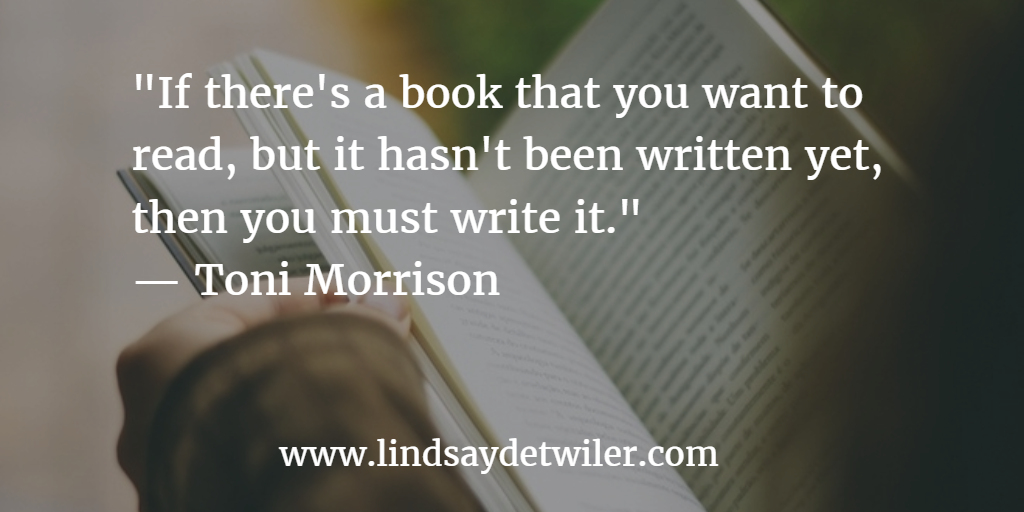


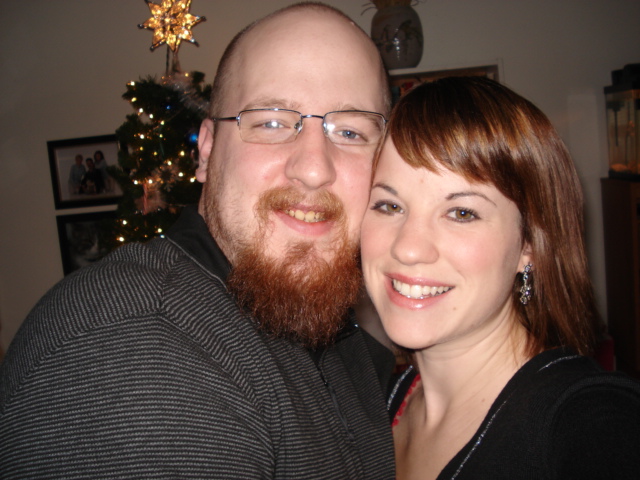

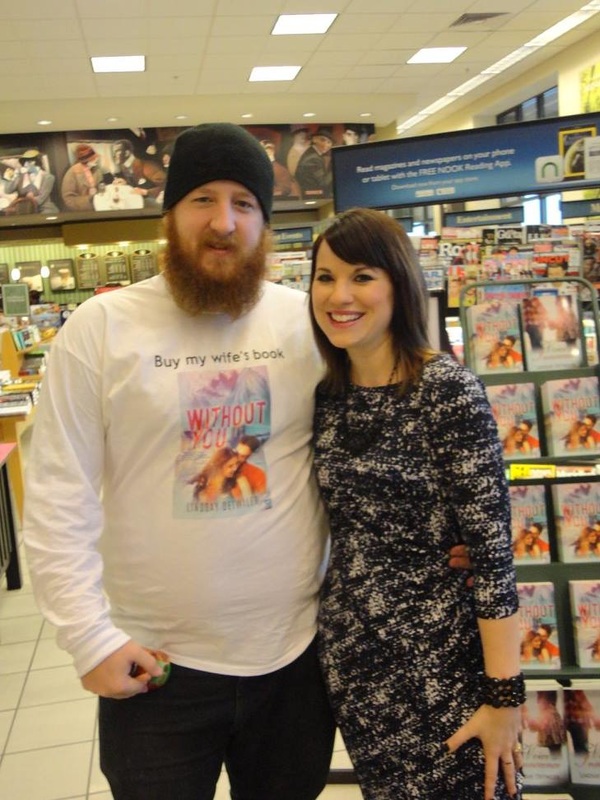


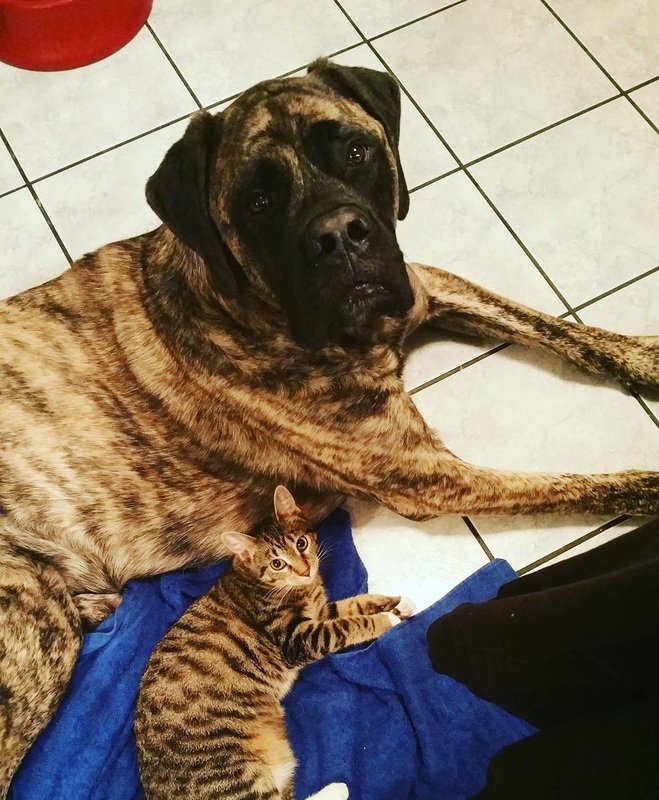
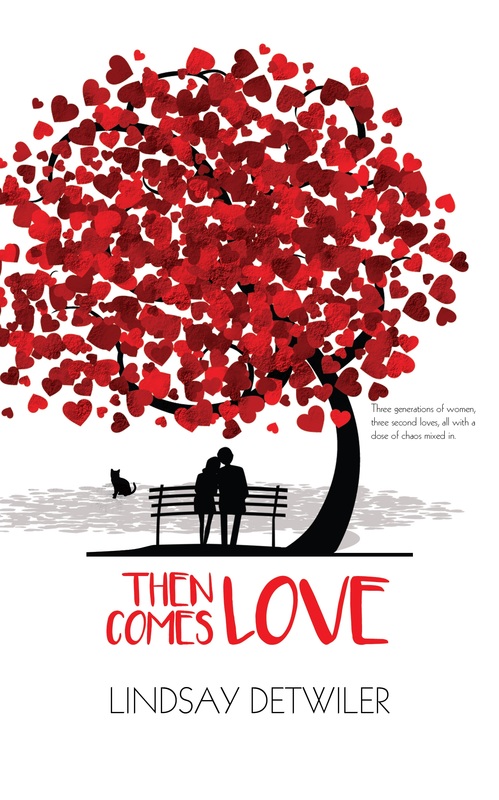


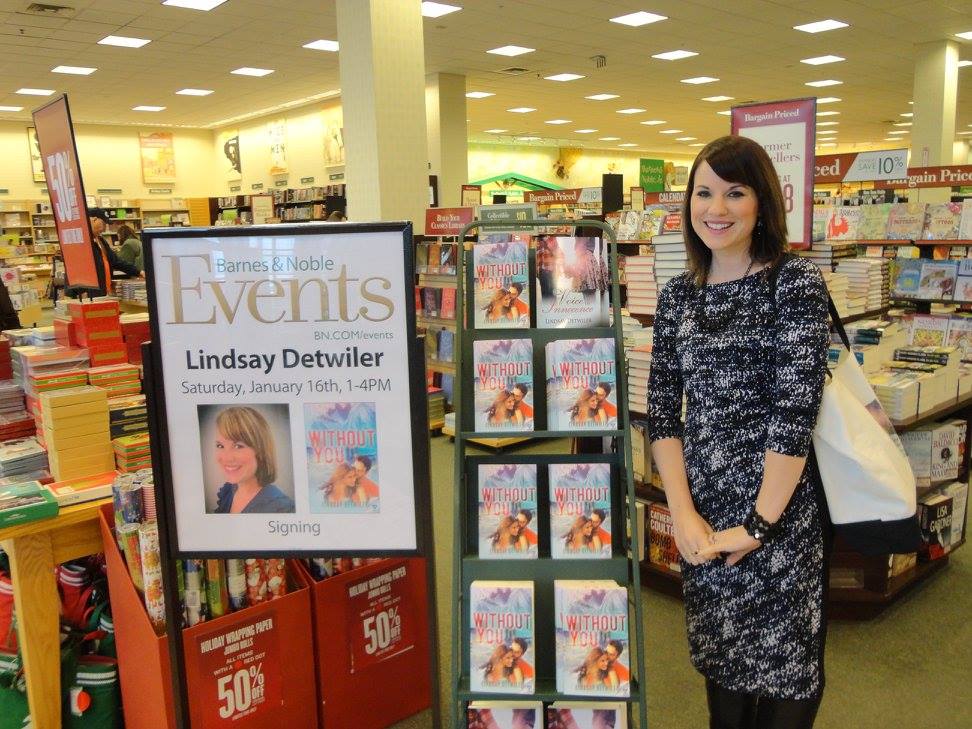
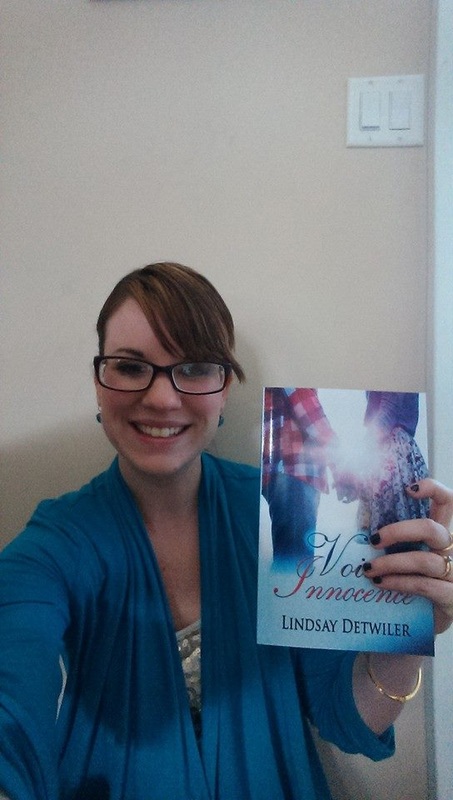




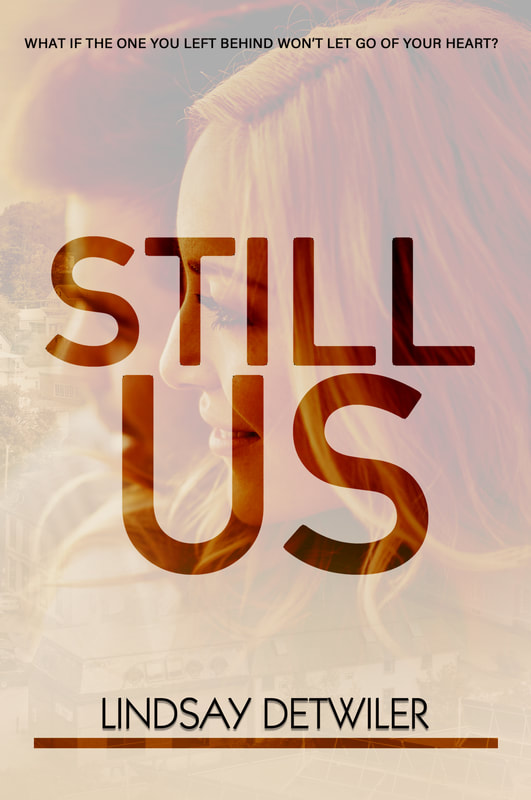

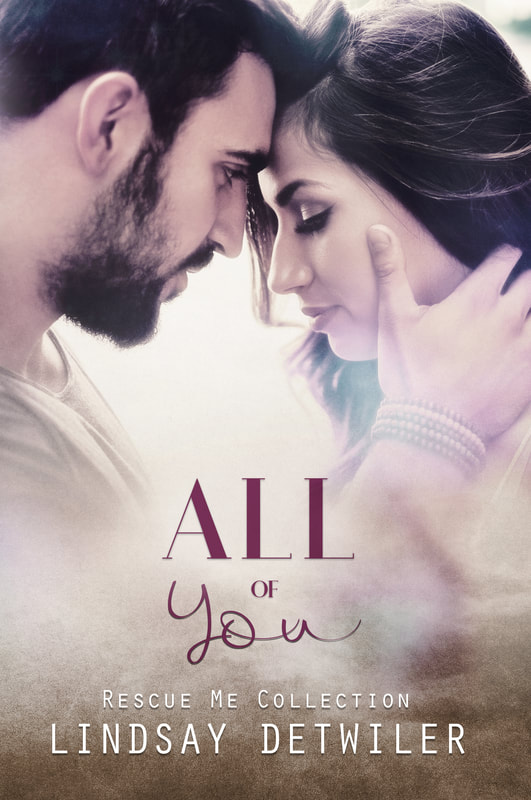

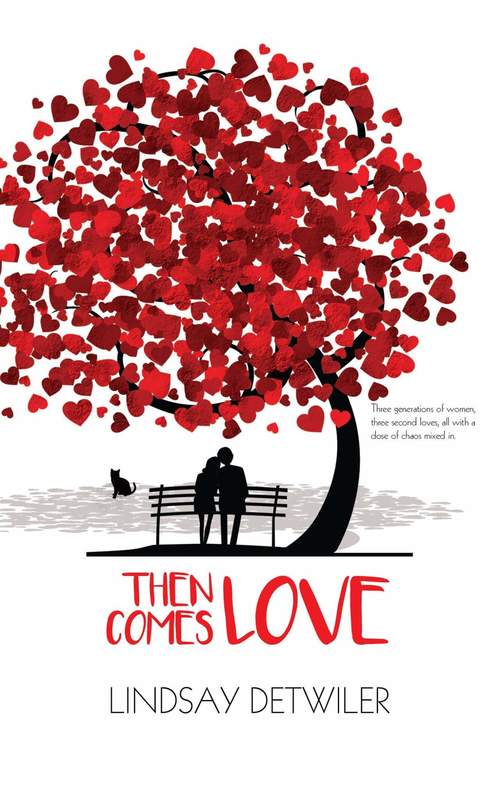

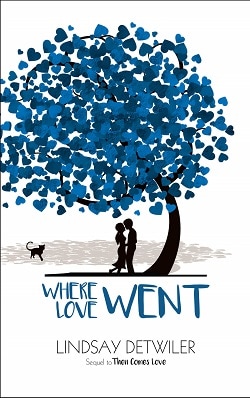
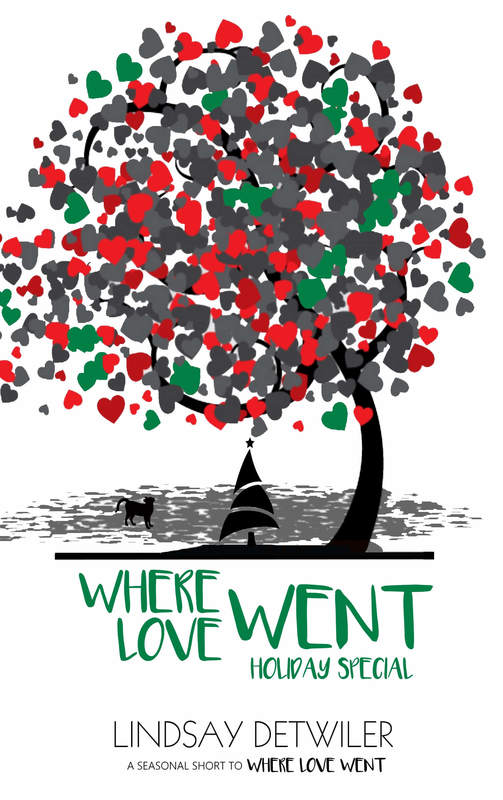
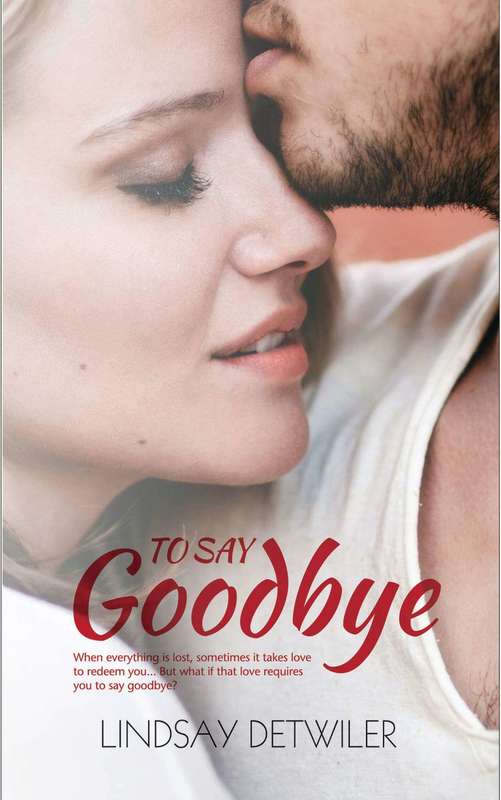
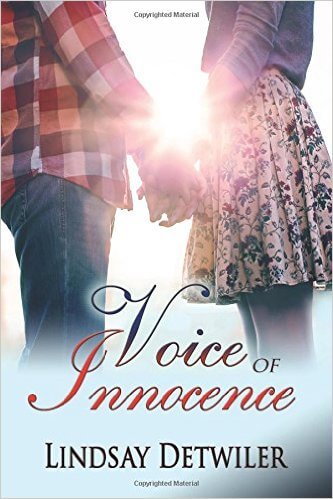
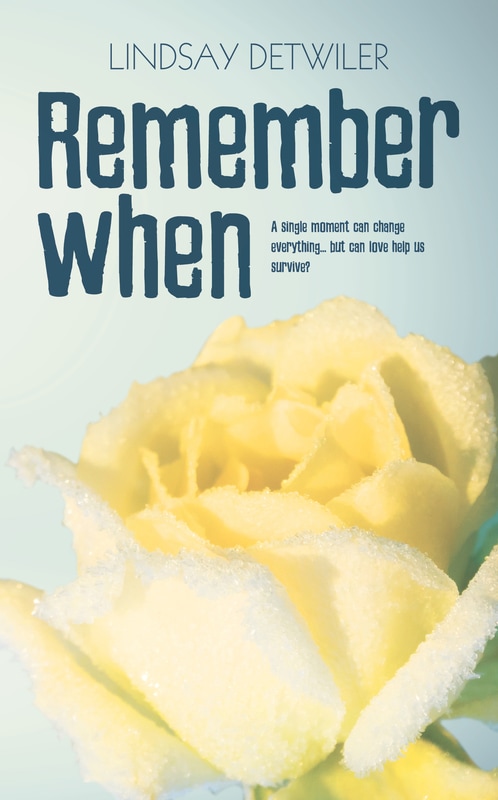
 RSS Feed
RSS Feed